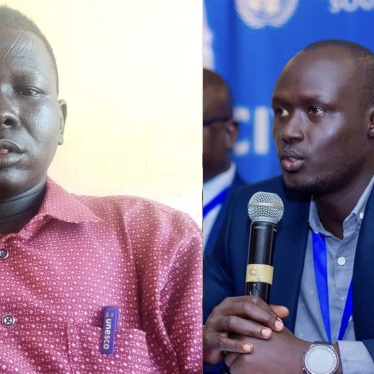The human rights situation in the Democratic Republic of Congo remains dire as the country’s political crisis deepens. President Joseph Kabila has used repression, violence, and corruption to delay elections and maintain his hold on power, despite the end of his constitutionally mandated two-term limit on December 19, 2016. A power-sharing agreement mediated by the Catholic Church late last year called for elections to be held by the end of 2017, but elections are nowhere in sight.
The government has systematically banned political opposition meetings and demonstrations, often by firing live bullets on those who dare to exercise their right to protest. In recent weeks, scores of opposition supporters and human rights activists have been jailed, many in secret detention without charge or access to family or lawyers. Others face trumped-up charges. In July, unidentified armed men shot and nearly killed a judge who refused to hand down a ruling against an opposition leader.
Well-placed security and intelligence sources describe official efforts to sow violence and instability through what appears to be a deliberate “strategy of chaos” to justify further election delays. In May, intelligence officials reportedly orchestrated a prison break in Kinshasa’s central prison, allowing some 4,000 prisoners to escape and fueling insecurity.
In the Kasai region, government security forces have been behind much of the violence that left more than 3,000 people dead, 600 schools attacked or destroyed, 1.4 million people displaced from their homes, and 80 mass graves scattered across the region. In March, two UN investigators – Michael Sharp, an American, and Zaida Catalán, a Swede – were killed while investigating violence in the region. Human Rights Watch investigations and a Radio France Internationale report suggest government responsibility for the double murder.
The president of Congo’s national electoral commission predictably blamed election delays on the violence in the Kasais.
The Council should call on Congolese authorities to ensure that the team of experts mandated to investigate violations in the Kasais are given immediate, unconditional access and can work independently. The Council should also condemn in the strongest terms the ongoing civil and political rights violations, and keep the broader situation in Congo on the agenda at each session next year.





